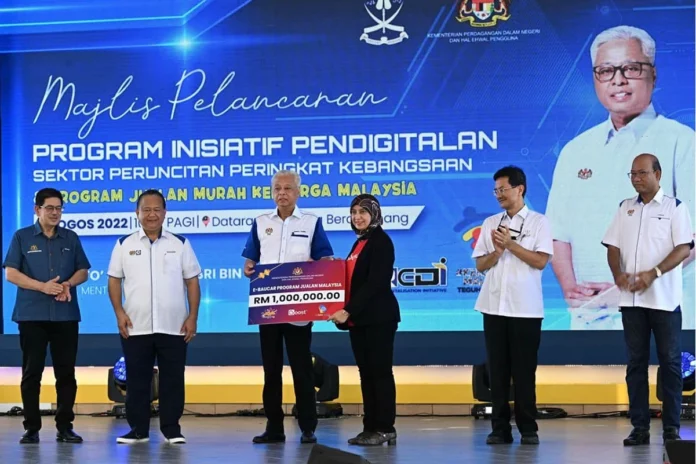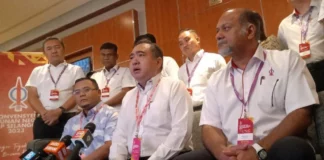BERA, Aug 27 — The government will ensure that the digitalisation agenda, especially the use of e-wallets among consumers and traders, is expanded to rural areas through the Retail Sector Digitalisation Initiative (ReDI), said Datuk Seri Ismail Sabri Yaakob.
The Prime Minister said that ReDI, spearheaded by the Domestic Trade and Consumer Affairs Ministry (KPDNHEP), was a timely and proactive move supported by Bank Negara Malaysia in creating an inclusive digital society.
He said there is currently a wide gap in cashless payments between urban and rural areas, even though the government wants rural communities not to be left out or marginalised from the digital economy advancement.
“The government will continue to ensure that the digitalisation agenda becomes the main focus at all levels, including expanding electronic payment methods nationwide.
“Through this effort, the government is confident that the transition to electronic payment methods such as the use of e-wallets is not only easy, fast and secure but also helps traders manage their businesses better and more efficiently,” he said.
Ismail Sabri said this when launching the National ReDI Programme and the Rebranding of the ‘Jualan Murah Keluarga Malaysia’ programme at Dataran Kerayong here today.
Also present were Domestic Trade and Consumer Affairs Minister Datuk Seri Alexander Nanta Linggi, Public Service director-general Datuk Seri Mohd Shafiq Abdullah, KPDNHEP secretary-general Datuk Azman Mohd Yusof and state Public Works, Transport and Health Committee chairman Datuk Seri Norolazali Sulaiman.
To encourage cashless payments, the Prime Minister said the government would be offering the ‘Program Jualan Malaysia’ e-vouchers with an allocation of RM2 million from Aug 30 to Dec 31, which can be downloaded from KPDNHEP’s MySales Tracker application.
As for Bera, he said an e-wallet incentive of RM20 would be provided to 1,000 people, in addition to RM100 credit to 1,500 people from selected target groups in each state constituency under the parliamentary constituency.
In his speech, Ismail Sabri also said that community awareness in doing business and getting services online is the underlying wisdom behind the COVID-19 pandemic.
“Online transaction has become the new norm, and in fact, cashless payment, which is the catalyst for the country’s digital economy, is projected to contribute 25 per cent to the Gross Domestic Product (GDP) by 2025.
“Based on the Payment Network Malaysia (PayNet) Digital Payment Insight Study 2022, the percentage of Malaysians using cash for payment purposes decreased by 11 points to 78 per cent from 89 per cent before the pandemic,” he said.
Among the initiatives implemented to encourage cashless payments through e-wallets is e-Pemula, involving an allocation of RM300 million under the 2022 Budget, which has benefited around two million youth nationwide after it was launched in April.
At the event, Ismail Sabri, who is also the Bera Member of Parliament, also announced that the first KPDNHEP smart office in Malaysia which is equipped with the latest facilities will begin operation in Bera from January next year.



















